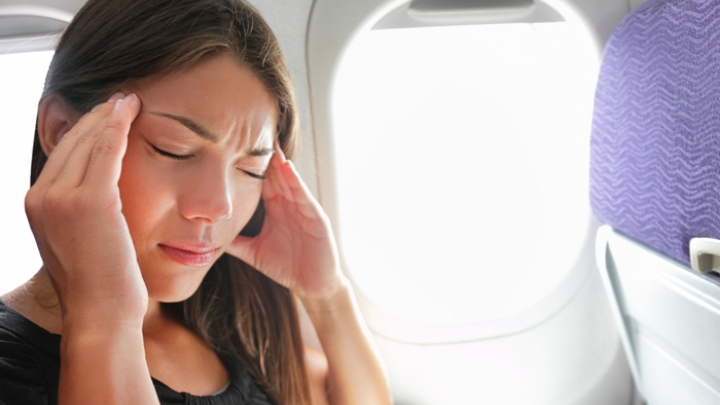Given the high cost of changing plane tickets, many people fly even if they are sick. But there are times when you should delay your trip—or abort takeoff altogether—because the decreased air pressure of a plane’s cabin and other physiological stresses of flying can lead to a range of medical complications.
The following examples are not a complete list, so check with your health care provider before flying if you’ve had any recent:
- Surgery (including colonoscopy)
- Injury
- Illness (including an ear infection)
Or if you:
- Have had or are at risk for blood clots
- Have an unstable or chronic condition
After surgery
- You should wait at least one to two weeks to fly after abdominal or chest surgery.
- You should wait to fly after some eye and head surgeries (or injuries) to allow air introduced into the body during the procedure to reabsorb.
- Otherwise, trapped gases, which expand about 25% as you ascend, can tear sutures, damage tissues, and cause bleeding.
If you have lung disease
- This can make it more difficult to breathe in an airplane cabin, where oxygen levels are lower.
- Your doctor can assess your lung function using various tests.
- Some patients are able to fly with supplemental oxygen.
- People with active pneumonia should not fly at all.
If you have a cardiovascular condition
- Flying is not advised for about two weeks after a heart attack, bypass surgery, or a stroke.
- People who have unstable angina, uncontrolled hypertension, or other cardiovascular problems that are not well controlled should avoid flying.
If you are wearing a cast
- This could be a problem because the limb may swell, causing discomfort and even impingement of nerves and restricted circulation.
- Bivalve casts, which are cut in two pieces, are recommended for recent fractures (less than 48 hours).
- Sometimes an air cast can be used in place of a hard plaster cast and adjusted to allow room for swelling.
After scuba diving
- Flying too soon after diving increases the risk of decompression sickness (“the bends”).
- Decompression sickness is when excess nitrogen forms microbubbles in tissues, causing joint and muscle pain and possibly affecting the heart, lungs, and brain.
- You must wait anywhere from 12 to 24 hours (or more), depending on the time of your last dive, how many dives you did, and how deep you went.
- Here is a good resource provided by Divers Alert Network. You can search for safety information about diving as it relates to flying and traveling as well as other diving safety information.
If you are in late pregnancy
- It’s generally advised not to fly after the 36th week of pregnancy (32nd week for a multiple pregnancy).
- Many airlines require a certificate after 28 weeks with the expected delivery date.
- Flying may be ill advised earlier in high-risk pregnancies.
If you have an infectious disease such as the flu
- Ideally, wait until you are no longer contagious—for your own comfort and to protect those seated close to you.
- The airline may not allow you to board, anyway, if you appear to be sick. If you do fly, wear a mask so as not to infect others.

